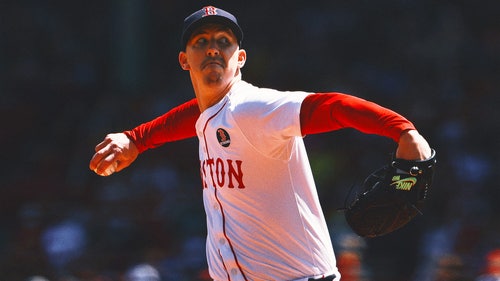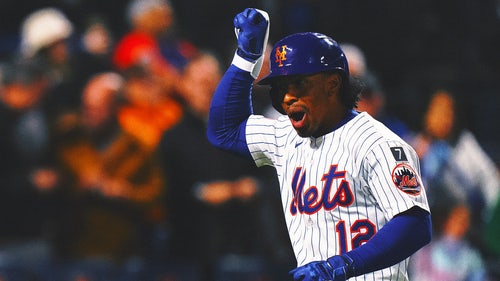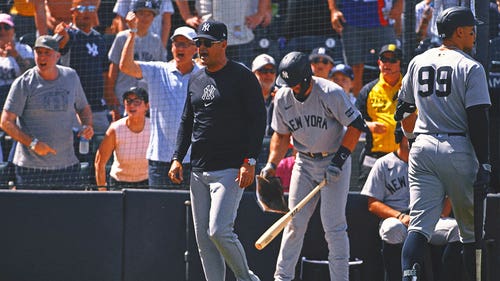
Once beaten down by years of losing, Cubs' Castro is a star reborn
The Chicago Cubs’ two new veteran catchers, Miguel Montero and David Ross, weren’t impressed by shortstop Starlin Castro in spring training.
Montero says Castro was, “a little bit too cool for school.” Ross says he actually was worried, wondering if Castro lacked fire.
Neither catcher is worried now. Nor is any other Cubs player, coach or team executive.
While the Cubs’ glut of infielders continues to trigger speculation that Castro might be traded, club officials should think twice before making such a move.
Castro, 25, is the most proven of the infielders, a three-time All-Star, a clubhouse leader. And his contract, which is paying him $6 million this season and $37 million from 2016 to ’19, is remarkably club-friendly.
True, Castro is not hitting as well as he normally does -- his offense tends to be streaky, and his groundball percentage through 39 games is at a career-high level. But he is engaged, committed, delighted to finally be part of a winning club.
“Being in a winning atmosphere with other young stars has really energized Starlin,” team president Theo Epstein says. “His defensive focus has been consistent each day, and he’s doing the little things to help us win. He’s endured this whole rebuild and then some so it’s nice to see him enjoying this so much.”
The Cubs, after averaging 93 losses in Castro’s first five seasons, entered Thursday as the leader in the NL wild-card race with a 22-17 record.
Castro, the longest-tenured Cub, says, “This is the team I’ve been waiting for my whole career.”
He says he doesn’t want to leave, and playing like he means it. Oh, Castro is batting only .266 with a .641 OPS, well below his career norms. And while he rates better in some defensive metrics than others, no one ever will confuse him with Andrelton Simmons.
Still, his offense only figures to improve, and his defense is getting better. Ask manager Joe Maddon to describe the difference he sees in Castro since the start of the season, and he uses one word: “Application.”
“In spring training, we got on him. Jonesy was on him a lot,” Maddon says, referring to infield coach Gary Jones. “Just technique. ‘Come in and get the ball. Don’t lay back on the baseball.’ He was notorious for laying back on the ball. We got him to play through the ball and become more of a one-handed fielder as opposed to two hands, stiff.
“The other thing that has shown up is his arm. Theo kept telling me he has a fine arm. We didn’t see it in camp. We’ve seen it the whole time here. He has thrown the ball really well, accurately and with something on it.
“More than anything, he has applied himself. He’s easy to talk to. He accepts instruction well. He’s very hard on himself. He’s very accountable to himself. I’m just learning the guy, but he has been an absolute solid, above-average major-league shortstop.”
Castro acknowledges that playing for a better team forced him to improve his defense.
“Oh yeah, for sure,” he says. “We have to concentrate. We have to give 100 percent every day. We have five great starters. It’s really different.
“I go out there at shortstop and try to make every play, you know what I mean? No joke. Keep your focus, stay in there, try to make all the plays. That’s really important, being on a winning team. We have to, we want to, make every play.”
Which doesn’t mean the Cubs will keep him at short; most in the industry acknowledge that rookie Addison Russell is a better defender at the position.
Russell currently is playing second base. To make room for him at short, the Cubs could move Castro to second or even third, and shift Kris Bryant from third to left. Javier Baez, a middle infielder currently at Triple A, also could factor into the equation. And at some point, a trade might be necessary to resolve the logjam.
Again: Castro is the known quantity. He was clicking offensively, batting .388 with a .941 OPS over a 27-game stretch, when he suffered a season-ending sprained left ankle on a slide at home last Sept. 2. The Cubs expect that at some point soon, he will find a similar groove.
“He knows what’s wrong when things aren’t going well. And he knows how to fix it,” assistant hitting coach Eric Hinke says. “He can put the barrel on a baseball better than most people. He’s super-talented, fun to work with.
“Sometimes he gets a bad rap for being lazy or whatever. To me, it’s the complete opposite. He has been working super hard on his defense and baserunning, because he knows that’s what he needs to do. And he’s there in the (batting) cage every day.”
His teammates notice the difference.
Montero, who says that Castro previously was “comfortable” in his ways, now describes him as hungry to win, a player who runs hard on even routine grounders.
Ross says that Castro is a leader and example particularly for the team’s younger Latin players, noting that even when he has a lapse, he will make up for it with a strong defensive play or competitive at-bat.
And then there is first baseman Anthony Rizzo, who joined the Cubs in 2012 and praises Castro’s consistent demeanor and burning desire to play (Castro averaged 160 games from 2011 to ’13 and has yet to miss a game this season.)
“He gets banged up, but he’s in there every day,” Rizzo says. “That’s not easy to find. Maybe sometimes people take that for granted. I don’t think he gets as much credit for being as good as he is.”
He’s good, and still getting better. The Cubs cannot trade him unless they get an equally valuable piece in return.
Castro is part of the team’s fabric, evolving into a player in full.





